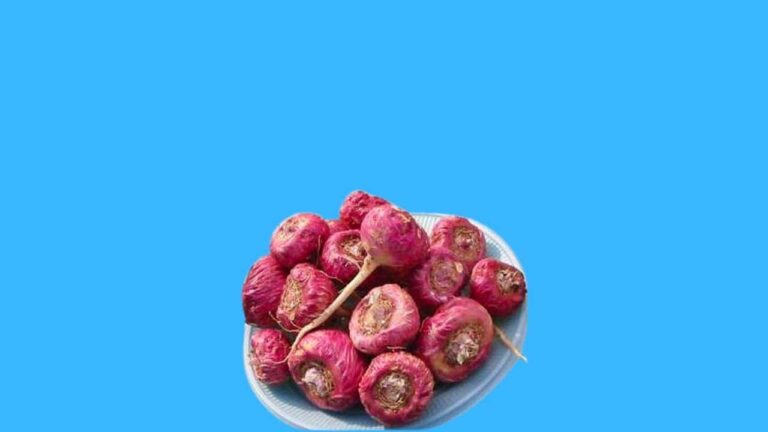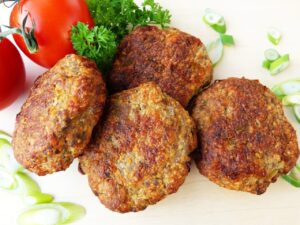BENEFITS OF MACA ROOT AND THE POTENTIAL SIDE EFFECTS

Although maca root is most often ingested dry and powdered, it is also available in capsules and as a liquid extract. Although some individuals detest the taste of maca root powder, it has been characterized as earthy and nutty. Numerous individuals use it into smoothies, porridge, and sweet treats.
BENEFITS OF MACA ROOT
Maca stimulates both men and women’s sexual desire. Adults often experience decreased sexual desire. Maca root may also be beneficial for men who suffer from erectile dysfunction. In 2009, a small research examined the impact of ingesting 2.4g of maca root per day on participants’ perceptions of their overall and sexual well-being after 12 weeks. Males with moderate erectile dysfunction were included in the research. Those who took maca root reported a greater rise in sexual well-being than those who took a placebo. As a result, there is considerable interest in herbs and plants that naturally increase libido. According to a 2015 research, maca root may aid in the reduction of sexual dysfunction in postmenopausal women taking an antidepressant. In four randomized clinical trials involving 131 participants, a 2010 research demonstrated that maca increases sexual urges after at least six weeks of ingestion.
Maca root powder is a nutrient-dense root that contains a variety of vital vitamins and minerals. Maca root powder is rich in carbohydrates and mineral-dense, including vitamin C, copper, and iron. Additionally, it contains a number of bioactive plant constituents.
Maca root is used by certain sportsmen and bodybuilders as a supplement to boost energy and performance. Maca root powder is a popular supplement among bodybuilders and athletes. It has been supposed to support muscular growth, strength development, augmentation of energy and exercise performance. Maca supplementation may enhance athletic performance, especially in endurance competitions. Its effects on muscular mass and strength, on the other hand, have not been explored. Additionally, certain animal studies show that it improves endurance. Additionally, one small research indicated that after 14 days of supplementing with maca extract, eight male cyclists improved their time required to finish a roughly 25-mile (40-kilometer) bike ride. At the moment, no scientific data exists to support any advantages for muscular growth or strength.
Maca is high in flavonoids, which are believed to boost mood and alleviate anxiety. Maca may help alleviate anxiety and despair, according to a research conducted on 14 postmenopausal women. It has been linked to decreased anxiety and depressive symptoms, especially in postmenopausal women. Maca has been shown to boost mental health and mood by alleviating sadness and anxiety, particularly in menopausal women. Additionally, a 2015 research discovered that maca may help alleviate depressive symptoms in postmenopausal Chinese women (Climacteric 18, no. 1 (2015): 69-78.)
Maca root is also often used to promote fertility, especially in males. Maca has been shown to boost sperm production and quality, hence increasing male fertility. When it comes to male fertility, it is important to consider the quality and quantity of sperm. A recent evaluation of five small trials concluded that maca improved the quality of sperm in both infertile and healthy men (9Trusted Source). Nine healthy guys were involved in one of the research analyzed. Researchers observed a rise in the volume, count, and motility of sperm after four months of maca consumption.
The sun’s ultraviolet (UV) radiation may burn and harm unprotected, exposed skin. UV exposure may produce wrinkles and raise your chances of developing skin cancer over time (Complementary Medicine Research 16, no. 6 (2009): 373–380. One research discovered that applying maca extract to the skin of five rats for three weeks reduced skin damage caused by UV exposure. The preventive activity of maca has been related to its polyphenol antioxidants and glucosinolates (Industrial Crops and Products 49 (2013): 747-754.). In an earlier research using an animal model, it was discovered that maca might help protect the skin from UV radiation. Another animal research published in 2011 concluded that it might help with learning and memory.
(Food and Chemical Toxicology 45, no. 10 (2007): 1882-1890) – Maca has been shown in animal experiments to increase cognitive performance in rats with memory impairment. In this way, black maca seems to be more beneficial than other types in enhancing cognitive performance. According to one research, maca leaf extracts may help reduce the production of sunburn cells. According to a 2014 assessment of the research, maca may have beneficial effects on memory and learning performance. It may be beneficial in treating disorders that impair these systems, such as Alzheimer’s dementia, the researchers indicated. However, since research on maca is now limited to animal models, it is unknown if it would have the same effects in people.
The prostate gland is unique to males. Prostate enlargement is prevalent in elderly men and may cause urinary problems. Animal studies indicate that red maca may help shrink the prostate. Prostatic hyperplasia, popularly known as benign prostatic hyperplasia, is frequent in older men (31Trusted Source). A bigger prostate may obstruct the passage of urine, since it surrounds the tube via which urine is evacuated from the body. It has been suggested that red maca’s impact on the prostate is due to its high glucosinolate content. Additionally, these drugs have been linked to a decreased incidence of prostate cancer.
Numerous possible side effects and health advantages of maca root are supported by animal research, and so it is unknown how the impact of Lepidium meyenii transfers to human models in certain circumstances.
ABOUT THE AUTHOR
TATYANA DYACHENKO
Tatyana is a part-time sex, health and CBD blogger with a handful of magazines and blogs. Tatyana has been featured in magazines such as Cosmopolitan, Teen Vogue. Vice, Tatler, Vanity Fair and many others. Tatyana enjoys pursuing her flare for creativity through modelling, graffiti art, astronomy and technology. She also enjoy cycling across London on an iconic Boris bike that has come to define London. You are most likely to bump into Tanya in Brick Lane or Camden Town where she enjoys spending most of her time.




